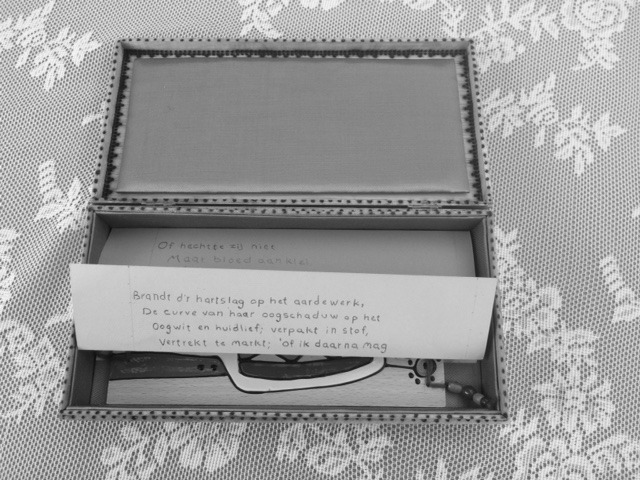It makes a telling difference whether one witnesses death from within or from without. When I see someone die, the event of death contains a suddenness to it that I can’t shake off. Even if we know someone is in a terminal condition, it is not until death is complete that we can say to have witnessed it. Somehow death always start from within; hence the expression: he’s death inside. The process of dying remains insensible from without. We see functions fall out, but life is nonetheless present, elsewhere. On the other hand we can consider the possibility of witnessing death from within the entity that is undergoing it. The first example of it is in the use of medical instruments that bring dying onto visual surfaces, which is the same as looking into the body, bringing out its surfaces.
The more mundane experience of witnessing death is seeing leaves fall from trees, although that is really neither witnessing it from inside nor outside. The tree is not dying and it is not that we are witnessing a gradual passing away. It is that the leaves themselves have died, which we witness only as death turns complete. Yet we might construe the cessation of a season in seeing millions of leaves fall one after the other. We can witness ourselves standing inside a season, and moving from one to another, transcending botanic cycles.
Witnessing the timeline of a dying evokes an amazement. But it does not surprise. What the observer inside a dying entity can miss is something else entirely: exactly the fact that death is in progress. The signs of completion are absent since dying is not complete yet. All seems normal since dying from inside is indistinguishable from the experience of merely divesting one’s attention from things. Those things just subtly disappear from the purview of attention. Only memory, of ever recalled after the death of its main dialer, can bring in the distinction between the things that have never existed, things that not anymore exist, and things that come back just as we attend to them again. Without memory, whatever dies, it will be as if they never existed.
(And isn’t it as if many victims of war and violence never existed in the mind of many who somehow took part in their dying? We didn’t even know them when they were alive. Evidently we engaging in wars in which we don’t kill enemies but strangers, who are not the same, but whom we conveniently confuse. “Keep you enemy close” must at least mean: know the name of your enemy.)
It is hard to prove, and hard to believe too, that we are in an era of Great Extinction. A book like Learning to Die in the Anthropocene will not be read by many; those who won’t notice the dying all around. The Leviathan seems blind, humans prove astonishingly insensitive and clueless. Yes, this is another change of season and while death is around, life will go on as well. But what was the fate of those who did not prepare for the coming of the cold season?
We are now reminded of Aristotle and Plato who wrote to save Athens in a time of crisis, a crisis that imploded Greece. They wrote to save their institutions, on paper. What of the possibility that they were writing of things whose death they experienced? What if their documented the dying of civilization instead of contributing to its life? And what if in reading them now, we are just secretly telling ourselves that whatever is passing through our attention is saying goodbye and wants to have its obituary written? Or maybe we have tried to furnish our experience as close to the memory of a dead civilization as possible? What if we have come to live inside an obituary, unwittingly but thoroughly?
What if we have written the obituary of the economy 9 years ago? Do you see how our politics has stopped talking about it? What if we are writing the obituary of politics? And what if the Anthropocene is just transcending all these ending cycles of human botany? It is perhaps time to turn the attention to the cycles that transcend us. But, can we ever get on line with Gaia?

